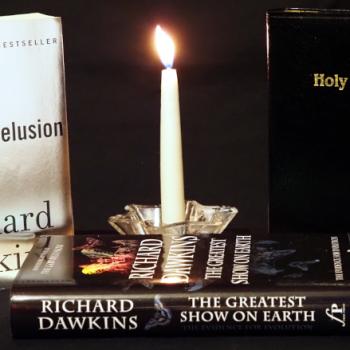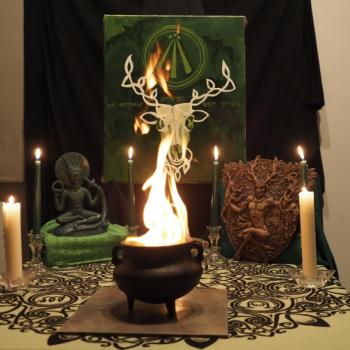This morning’s service at DUUF featured the music of Vocal Magic. Here’s my introductory reflection:
***************************
In the 1965 film Shenandoah, Jimmy Stewart portrayed Charlie Anderson, a Virginia farmer who tries to keep his farm and his family out of the Civil War. Early in the film, Charlie sits down at the table with his family and says grace before dinner.
“Lord,” he says, “we cleared this land, we plowed it, sowed it, and harvested. We cooked the harvest. It wouldn’t be here, we wouldn’t be eatin’ it if we hadn’t done it all ourselves. We worked dog-bone hard for every crumb and morsel, but we thank you just the same anyway, Lord, for this food we’re about to eat. Amen.”
You think Charlie Anderson might have been a Unitarian?
Despite his litany of labors, Charlie Anderson still paused to offer thanks. Perhaps this classic American character was simply following rote custom, but I like to think at some level he knew there was more to his dinner than the work he and his family had done. They cleared the land but they didn’t make the soil fertile. They sowed the seed but they didn’t make the seed. They didn’t make the sunshine that fed the plants or the rain that watered them; they may have shooed the birds off but they didn’t keep the hail and damaging winds at bay.
So much of our lives depends on things we do not control – that we cannot control. So much that we enjoy comes to us by grace. Gratitude reminds us to be humble.
Gratitude also fuels cooperation. In an essay titled “The Moral Instinct,” Harvard psychology and linguistics professor Steven Pinker makes a strong case that fairness – reciprocity – is one of the instinctive morals that developed through the evolutionary process. Pinker says “Sympathy prompts a person to offer the first favor, particularly to someone in need for whom it would go the furthest … Gratitude impels a beneficiary to reward those who helped him in the past.” This builds a virtuous cycle of giving and gratitude, each of us doing a kindness that isn’t in our immediate self-interest but over the long term provides us all with far more benefits than we could ever generate on our own.
It is generally assumed that our ancient pagan ancestors made offerings to their gods in fear and trembling, hoping that giving a portion of their crops and herds would appease and propitiate the forces of Nature. Certainly that practice existed. But there is also clear evidence that many of these offerings were reciprocal acts of thanksgiving – the gods blessed us with a fine harvest, so we give back to the gods.
How can we reciprocate when Nature provides a bountiful harvest? How can we reciprocate when soldiers give their lives in defense of their country? How can we reciprocate when a mother gives birth or when a stranger gives blood? We can’t, but our instincts urge us to do something. And so we simply say “thank you.” We acknowledge the gift and the good intent behind it; and we acknowledge that as we receive, we take on an obligation to give, to reciprocate, to continue this evolutionary urge and sacred tradition.
While thanksgiving is part of a reciprocal transaction, praise is a one-way decision, an attitude we choose to take. We UUs tend to be skeptical of the idea of praise, but at its core praise is a declaration of optimism, a statement of faith in the essential goodness of life.
There are times when even the most cynical among us are moved to praise: watching a sunrise, the first flower of Spring, those rare days when everything seems to go our way. But what about those times when things don’t go our way, when life is hard or even cruel? Praise is still an attitude we can choose.
The Book of Job is generally thought to be the oldest book in the Bible, and it deals with the very old question of why bad things happen to good people. In this book God doesn’t come across as a very sympathetic character. He allows Satan to torment Job, he uses Job’s family as pawns, and when Job asks “why?” God’s response is “Where were you when I laid the earth’s foundation?” Who are you to question me?
Many religious liberals find that an unacceptable answer. But we can’t do much better in explaining why bad things happen. We can’t control what happens, and we can’t explain it. All we can control is our response. Job says “Though he slay me, yet will I trust in him.” No matter what, Life is good.
Some of you may remember Rev. Michael Dowd, who preached here in 2006 as part of his ministry of evolutionary evangelism. His last book was titled Thank God For Evolution, and he’s perhaps the best I’ve heard at explaining how and why religion and science aren’t opposed to each other. A few months ago Michael was diagnosed with cancer – he has only a 50% chance of living more than three years. He and his partner Connie Barlow have had to leave the road and stay with friends; his life’s work is on hold and may be over. In a recent blog posting, here’s what he had to say:
“Life is good! Lots of gratitude, trust, passionate resolve, and the support of others … I don’t have to wait to die to experience the ‘peace that passes all understanding’. By grace, it’s mine now, thanks to living in integrity … Evolutionary spirituality … provides more trust, gratitude, inspiration, comfort, and a sense of belonging than the biblical writers with their … supernatural interpretations of the private revelations of their day could have possibly experienced. What a glorious, amazing time to be alive!”
Thanksgiving is a bargain. Praise is a choice.
And so we come to the centerpiece of this morning’s service. Vocal Magic has prepared a selection of songs on the theme of gratitude, thanksgiving, and praise. May the beauty of their music inspire us all to declare that despite the hardships and heartbreaks, Life is good.
*************************
We weren’t able to record this service, but here’s a link to Vocal Magic’s Facebook page, which includes some videos.
















